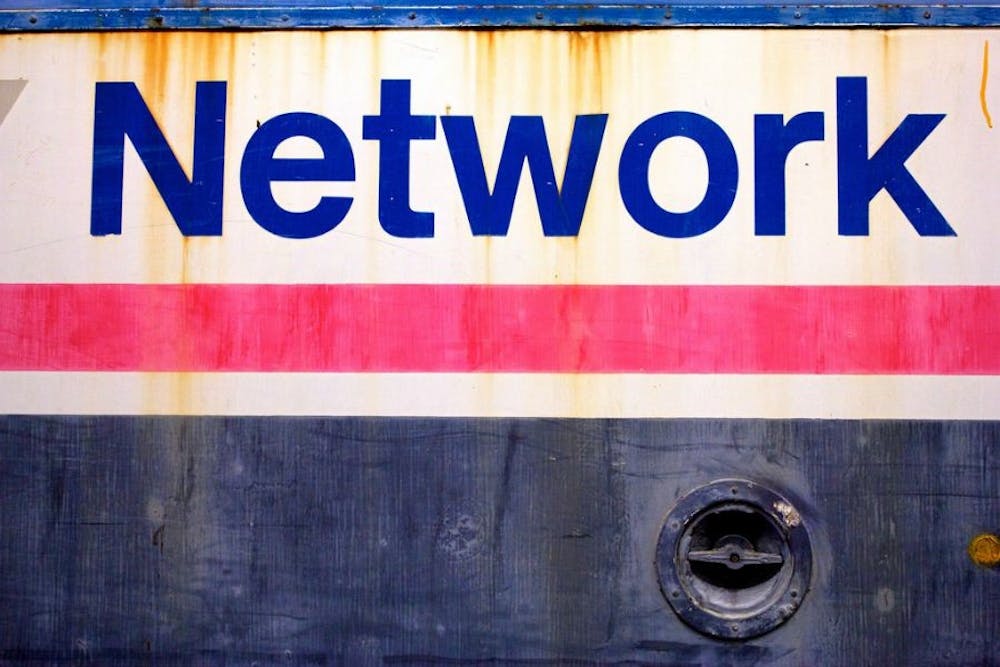While in high school, I remember teachers, parents and guidance counselors constantly telling me to network and make connections. Networking is the path to success, they said.
I'm sure many of Miami's incoming freshman have heard similar sentiments from their teachers, parents and guidance counselors. But I'm not sure how many of us actually heeded that advice.
Back in May of this year, Mark Bauerlein, an English professor at Emory University, wrote a much-discussed New York Times op-ed entitled, "What's the Point of a Professor?"
In his piece, Bauerlein noted that engagement with professors, as thinkers and mentors, is minimal. One of the culprits he cited is email, as it lessens the potential for face time with a professor where such "transfer of insight" can begin.
"For a majority of undergraduates, beyond the two and a half hours per week in class, contact ranges from negligible to nonexistent," Bauerlein said.
The other reason is that the stated objectives have flipped for American freshmen. In 1967, 86 percent said "developing a meaningful philosophy of life," was essential or very important. Now, that is down to 45 percent, with 82 percent of freshman citing "being very well off financially" as essential or very important.
I spent the first three years at Miami with the mindset of "get in, do the work and get out." I was certainly interested in learning and learning for its own sake. As not just a philosophy major, but as someone that likes to learn, "developing a meaningful philosophy of life" has always been more important to me than making money.
However, my engagement with professors, for the most part, consisted of whatever that work entailed in the classroom. Some of it was intimidation - these were college professors after all, whoa - and some of it was just me not making the effort to initiate.
Semester after semester, syllabus after syllabus, professors urged their incoming students, myself included, to seek their counseling and to visit their office. All too often, that plea became white noise, hidden behind the assignments and projects in the weeks ahead.
I'm not even sure I saw the inside of a professor's office those first three years.
Well, let me reiterate the aforementioned advice: network, network and network with professors. Engage with them beyond what goes on in the classroom because from personal experience, once I did so, it changed not just my education and career path, but also my life.
This summer I had the opportunity to do an internship with the Post Independent in Glenwood Springs, Colorado, a small town of less than 10,000 people, three hours west of Denver.
The prospect of a newspaper internship excited me in the sense that I knew it would look great on a resume in the future and would give me invaluable experience. However, it also terrified me to jump in the deep end of these pesky things known as a "career trajectory," "adulthood" and "life."
I'm not a journalism major, I've only taken a few courses on the subject and have written even fewer actual news stories. All I knew was, at the end of the day, I was passionate about the subject and I trusted what came out of my fingertips.
Fortunately, one of Miami's journalism professors, Patricia Newberry, or just Patti, contacted me to offer feedback on one of my columns. From there, she recommended I take her journalism course, Critical Writing in Journalism, which I did last spring.
After more than four years of schooling, I felt like my decision to take her course was one of the best ones I had made. There's an enormous difference between merely being a student and being a student where a professor is actively rooting for you to succeed.
Patti knew the editor, Randy Essex, at the Post Independent and presented the opportunity to all journalism students. I took the bait, applied and managed to get the internship.
Unfortunately, going 1300 miles across the country for a two-month, unpaid internship was impossible under my financial situation. There was a two week period where I had said no to Randy, thinking I wasn't going. And in that two-week period, admittedly, I was in a dark place mentally.
Another summer and another missed opportunity lay before me and it didn't look pretty.
However, Patti stepped up yet again and went through her contacts and the financial aid office and helped to secure the necessary funds to make it happen.
She not only presented the path to the internship for me, but nudged me down the path past my fears, insecurities and the real-world cost of actually doing it.
The experience in Colorado turned out to be exactly what I needed mentally and as a step forward. It was challenging, but rewarding, and a summer I'll never forget.
The experience proved to me that not only do we have to find ways to explode through our comfort zones, but that, in every step of the way, there's has to be someone there rooting for you. No matter your skill or talent, you're not going to get it done alone.
Miami's a beautiful, enormous campus with professors from all over the world with not just mentoring advice to offer, but contacts that could elevate you to the next step.
So, network and find those professors that can help to change your life, too.

